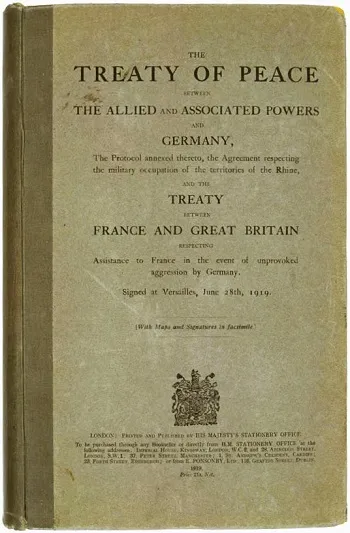What could Facebook have done differently in its fight for ‘digital equality and freedom’ ?
Freedom has been one of the most intensely discussed topics over the last few months. There are many avatars and interpretations of freedom that are currently trending on social media, perhaps the most recent of those being Apple’s standoff against the FBI in the San Bernardino case.

Image credit: Shutterstock
Such is the potency of the keyword Freedom, that #freedom251 has become a trending search on social media. If you are one of the (many) customers who have pre-ordered the Freedom251, you have already reserved your place in history as being party to either the greatest customer acquisition strategy, or the greatest gimmick, of recent times.
Freedom was also the theme behind the debate over Free Basics’ existence in India – Ending with TRAI slamming differential pricing and Marc Andreessen tweeting about India’s stand against colonialism.
When I look at how Facebook’s Free Basics campaign in India evolved, there appear to be unmistakable undertones of confrontation, especially in the way it handled the deadline given by TRAI, and the heated exchange with Mahesh Murthy.
History shows that there are ways to end a conflict that create a win-win for both parties, and then there are really bad ways. With all the talk of freedom and colonialism thrown in, my mind went back to perhaps the shoddiest job ever done in the history of the world, when it came to making peace.

The Treaty of Versailles
Conventional history reports the Treaty of Versailles(Image credit) as the peace treaty that marked the end of the World War-I between Germany and the Allied powers. If only there had been nothing more remarkable about it.
When I was preparing for the CBSE class X Board exams 15 years ago, a popular question in the history paper was around the many negatives that were caused by the Treaty of Versailles. Perhaps the most thought-provoking (and the likeliest to be a 10-marks essay question!) of the questions was,
How did the Treaty of Versailles lead to World War-II?
For those who didn’t know about the Treaty of Versailles (Or have forgotten it after by-hearting it during the Board exams), the treaty called for Germany to accept disarmament, give up important mineral-rich territories such as Rhineland, and pay reparation damages worth $132 billion marks (about $442 billion today).
If all of this wasn’t enough, the Allied Powers chose to add Article 231, also called the ‘War Guilt clause’ which stated,
The Allied and Associated Governments affirm and Germany accepts the responsibility of Germany and her allies for causing all the loss and damage to which the Allied and Associated Governments and their nationals have been subjected as a consequence of the war imposed upon them by the aggression of Germany and her allies.
These developments carry shades of a watered-down Internet being justified through the use of digital pledges that ambush unsuspecting Facebook users.The last time something of this sort came to pass, the world eventually saw the rise of Hitler and World War-II. What might Free Basics have given birth to? But have there been examples where peace treaties have unambiguously achieved peace, and have created a win-win for both of the (formerly warring) parties?
History is generous with several such examples, but I choose to discuss two in particular:
Chandragupta Maurya and the Greeks
While Chandragupta Maurya’s former adversary, the Greek emperor Alexander the Great, his advisor Chanakya, and his grandson Ashoka, are revered figures in Indian and global history, Chandragupta himself appears to be a relatively under-documented historical figure.
While Alexander passed away during the Greek campaign to extend their territory in India (Ah, does this remind you of certain recent events?), his successor Seleucus waged a war with the Mauryas (led by Chandragupta).
With the war moving decisively against the Greeks, the two decided to enter a peace treaty to control losses.
As a part of this treaty, Chandragupta Maurya gifted 500 war-elephants to Seleucus, a gift that would play a decisive role in the latter’s victory in the Battle of Ipsus (most notably, Greek armies never had access to elephants until then).
And how did Chandragupta Mauya benefit? In addition to the opportunity to establish a unified pan-India empire and commence trade with the Greeks, he became one of the few foreigners of ancient times who was granted Epigamia, a very and highly prized legal right that allowed foreigners to marry Greek residents (in this case, Seleucus’ daughter).
If there was one peace treaty that both parties had no regrets signing, this might well be the one.
PayPal and X.com
Returning to more modern times, when most wars are fought using competing technologies and business models, and armed by VC dollars, it is worth recalling the conflict that eventually led to PayPal as we know it today.
Paypal began as Confinity, a developer of security software for handheld devices, founded by Max Levchin, Peter Thiel, Luke Nosek, and Ken Howery. PayPal started as a money transfer service within Confinity in 1999, and faced intense competition from Elon Musk’s X.com, an online banking company, before their eventual merger in 2000.
As Peter Thiel later wrote in Zero to One,
“If you can’t beat a rival, it may be better to merge. I started Confinity with my co-founder Max Levchin in 1998. When we released the PayPal product in late 1999, Elon Musk’s X.com was right on our heels: our companies’ offices were four blocks apart on University Avenue in Palo Alto, and X’s product mirrored ours feature-for-feature. By late 1999, we were in all-out war. Many of us at PayPal logged 100-hour work weeks. No doubt that was counterproductive, but the focus wasn’t on objective productivity; the focus was defeating X.com. One of our engineers actually designed a bomb for this purpose; when he presented the schematic at a team meeting, calmer heads prevailed and the proposal was attributed to extreme sleep deprivation.
But in February 2000, Elon and I were more scared about the rapidly inflating tech bubble than we were about each other: a financial crisis could ruin us both before we could finish our fight. So in early March we met on neutral ground – a café almost exactly equidistant to our offices – and negotiated a 50–50 merger. De-escalating the rivalry post-merger wasn’t easy, but as far as problems go, it was a good one to have. As a unified team, we were able to ride out the dot-com crash and then build a successful business.”
Successful business indeed.
Why wage war when you can make peace and build a company that sells to eBay for $1.5 billion a few years later?
Related read: 12 success tips for startups – from Peter Thiel, founder of PayPal
History aside, is there a more direct takeaway in terms of how Facebook could have done things differently with its ambitions in India?
Well, it needs to look no further than Google.
Earlier this year, while Facebook was keeping itself busy with debates on freedom and the need for Internet inclusion, Google set up free WiFi at the Mumbai Central railway station. While passengers are already loving the high-speed Internet for free, two statements in Wall Street Journal’s coverage make for interesting reading.
“The service is entirely free for now, but that could change as the company looks for ways to make it pay for itself. While there will always be some level of free WiFi available, the long-term goal will be making this self-sustainable to allow for expansion to more stations and places,” Google said in a blog post.
Google spokesman Taj Meadows said there isn’t “an exact timeline for when the current free model might change, but it’s fair to say this is a longer term thing, not a matter of weeks.”
and
“Google is keen for new users – many of whom are coming online for the first time on low-cost smartphones running its Android operating system – to tap into its services like search, Gmail and video platform YouTube.”
Do these plans remind you of a recent debacle by another global tech giant? It is remarkable how much the imperialistic ambitions of global empires can converge, and yet be seen in an entirely different light.
Is it a coincidence that a little week after its rollout at Mumbai Central station, Google surpassed Apple as the world’s most valuable company?
When it comes to creating value, competition and confrontation seem to be overrated. History tells us that peace and altruism can yield handsome business returns.
(Disclaimer: The views and opinions expressed in this article are those of the author and do not necessarily reflect the views of YourStory)







